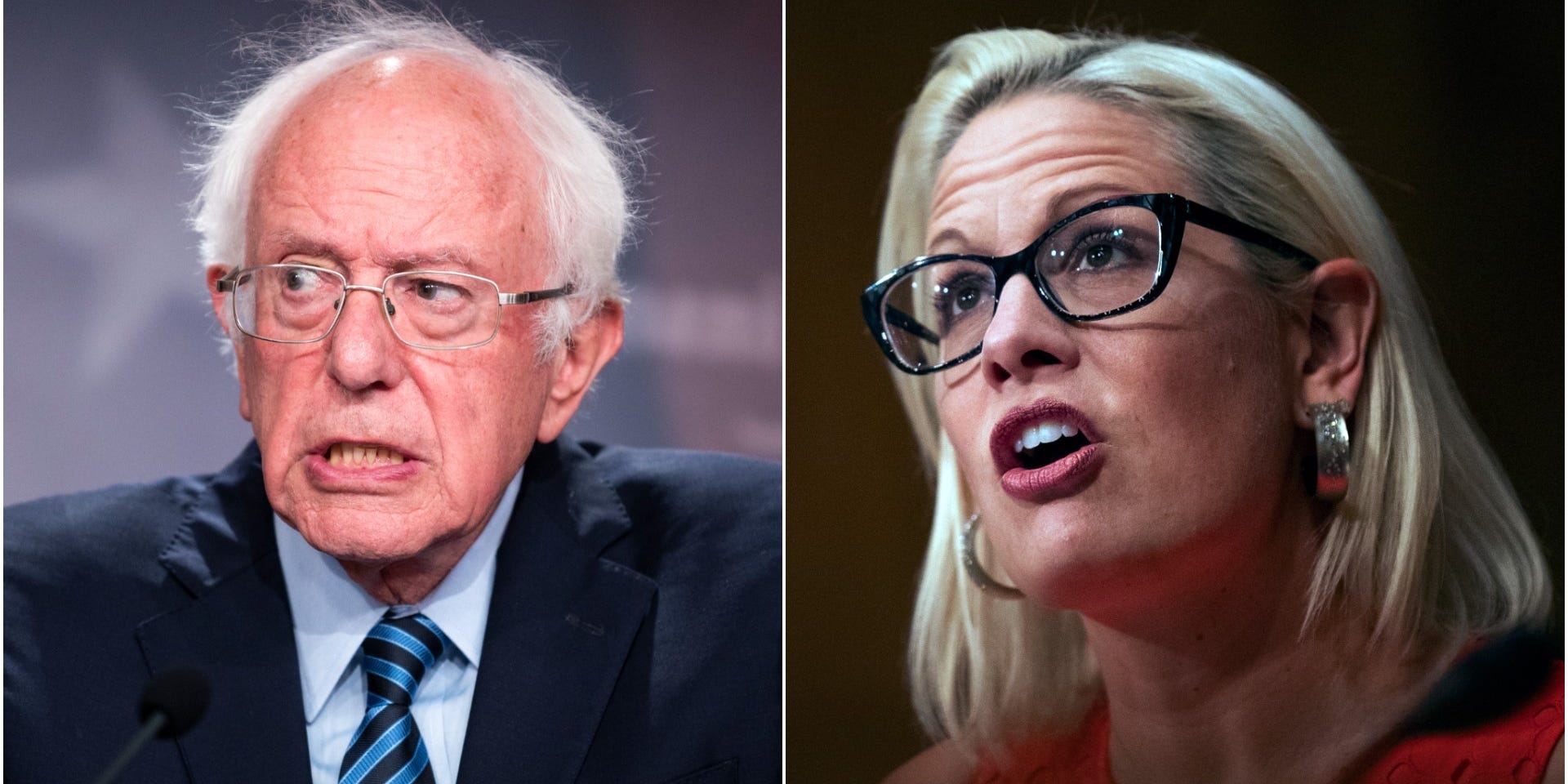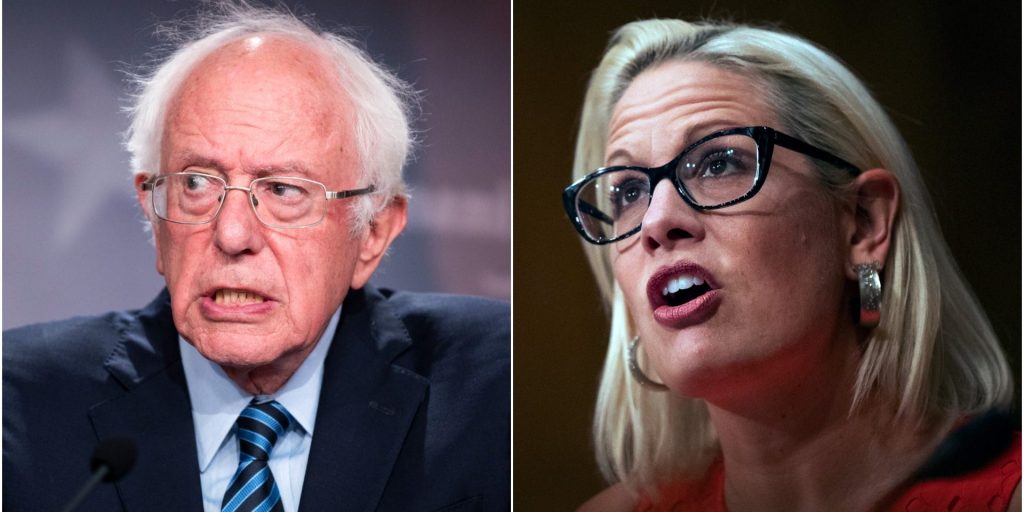
Bill Clark/CQ-Roll Call via Getty Images; AP photo
- Sen. Bernie Sanders is digging in to preserve the size of his $3.5 trillion budget plan.
- "I've already negotiated," he told Politico.
- Sanders initially sought a $6 trillion budget plan, but later struck a deal with moderate Democrats.
- See more stories on Insider's business page.
Sen. Bernie Sanders of Vermont has a fresh message for Democrats: He's digging in.
In an interview with Politico published Thursday, the Vermont independent said he wasn't interested in cutting the size of a $3.5 trillion spending plan Democrats are starting to assemble. Some moderates like Sen. Kyrsten Sinema of Arizona already say they're opposed to the package's sizable price tag.
"I've already negotiated," he said. "The truth is we need more. The needs are there. This is, in my view, the minimum of what we should be spending."
Sanders initially pushed a $6 trillion budget plan in June. But he struck a deal with centrists such as Sen. Mark Warner of Virginia on a $3.5 trillion budget blueprint, which contained the bulk of President Joe Biden's jobs and families plans from the spring.
Sander's remarks could kick off another round of negotiations between progressives seeking to curb inequality and expand the government's role in the economy and moderates seeking to restrain those ambitions with a smaller plan.
The party-line spending plan would expand Medicare to cover dental, vision, and hearing, set up a national program for paid family and medical leave. It would also include tuition-free community college, a child allowance, subsidies for childcare and initiatives to address the climate crisis among other provisions.
The House advanced the plan on Tuesday after a 48-hour showdown between Speaker Nancy Pelosi and a bloc of moderate lawmakers seeking an immediate vote on a separate bipartisan infrastructure bill.
Democrats aim to fully finance the plan with a range of tax hikes on the wealthiest Americans and large firms, partially rolling back President Donald Trump's 2017 tax law.
But the budget plan faces an uphill battle to passage in the 50-50 Senate. Democrats are using a fast-track process known as reconciliation to secure its eventual passage with only a simple majority vote and over likely unanimous GOP opposition. But the procedure requires all 50 Senate Democrats to stay united for it to garner a tiebreaking vote from Vice President Kamala Harris.
Sinema said she opposes the plan's cost. "I do not support a bill that costs $3.5 trillion - and in the coming months, I will work in good faith to develop this legislation with my colleagues and the administration to strengthen Arizona's economy and help Arizona's everyday families get ahead," she said in a statement last month.
Another key moderate, Sen. Joe Manchin, also has repeatedly expressed unease with the price tag of the plan.
Sanders announced on Wednesday that he's touting the benefits of the budget plan in Republican strongholds where Trump expanded his vote total between 2016 and 2020. He's spending this weekend hosting town halls in Indiana and Iowa.
"While it will have no Republican support in Washington, Democrats, Independents and working class Republicans all over the country support our plan to finally invest in the long-neglected needs of working families," he said in a statement. "I very much look forward to hearing from some of them."

